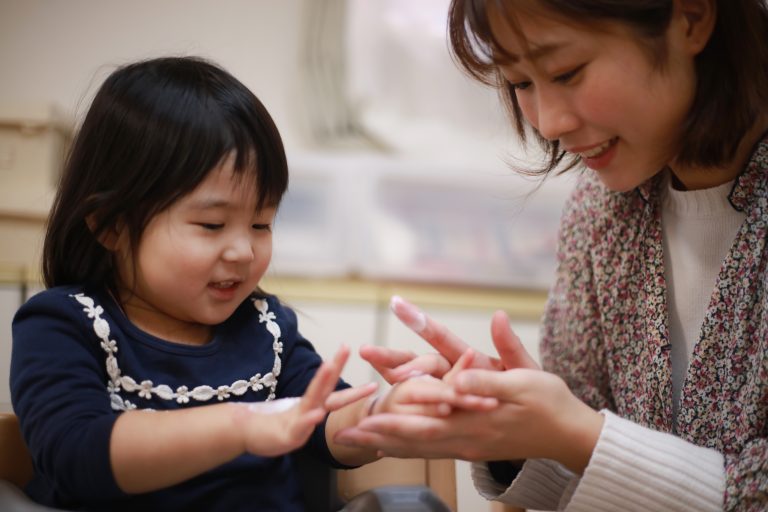Thank you for downloading!
Subscribe to our newsletter to receive email updates about our work, get connected and support Australians impacted by eczema. You can unsubscribe at any time.
Subscribe NowIn Australia, up to 30% of children have eczema. Whilst the child’s suffering can be extreme, the impact on families is also tremendous and often unrecognised. It can affect sleep, relationships, schooling and sibling dynamics, to name a few.
Along with ESA managing director and eczema mum, Melanie Funk, this 7 part video resource provides an insight into the daily challenges faced by families with eczema and features wisdom and strategies from two renowned experts:

Sleep deprivation is one of the most debilitating challenges of raising a child with eczema. Lack of sleep leads to big emotions, ineffective parenting, lack of intimacy for a couple, and distress for everyone in the family.
Nearly 30% of children with atopic dermatitis experience disrupted sleep five or more nights a week, which can lead to daytime sleepiness, irritability, inattention and moodiness.
There’s one thing for certain when it comes to raising children: from time to time, you’re going to experience challenging behaviour. Add a painful and irritable skin condition and watch those challenges multiply.
Children behave in challenging ways – not because they’re trying to test you – but because they’re feeling challenged. When you feel lousy, you act lousy. Same for the kids. Maybe they are in pain, sleep deprived, or they hate wearing scratch sleeves or using creams and medications. Perhaps they’ve learned to scratch to get what they want.
Research suggests that children with eczema, particularly atopic dermatitis are more likely to experience bullying in school and social isolation because of activity restrictions due to the disease.
While findings on mental health outcomes are mixed there is research to suggest they may also be at some risk of mood disorders like anxiety. Fortunately psychology research gives us plenty of points for how we can reduce these risks and help our children thrive, even while facing the challenges of eczema.
Caring for a child with eczema can become all-consuming for some parents. When eczema is severe, parents can experience significant distress as they search for a cure to ease the seemingly relentless pain their child suffers through. And, in some cases, being an “eczema parent” can become a part of some mums’ or dads’ identity.
The family often suffers too, with exhausted and protective parents unable or unwilling to do much beyond their basic responsibilities and caring for their child.
As if having a child with eczema isn’t enough, sometimes our children suffer additional challenges. These might be physical – like asthma – or psychological, like anxiety. Perhaps they could even be neurological – ADHD is an example of this. We want answers. We want to know how to fix things. We want to make it all better.
Truth is, sometimes we can help… but sometimes we can’t. Life can be messy and complicated. But there are some things we can always keep in mind.
When it comes time to hand over the care of your child to school or early learning centre staff, it can be difficult.
We discuss ways to share the care and get on the same page with the management and understanding of your child’s eczema.
The world is full of people with opinions on just about everything. This includes eczema! What’s amazing is that some people know all about international politics, bitcoin, COVID-19, eczema, and naked mole rats! These people usually hang out on Twitter and Facebook ? But are they helpful for you as you raise a child who is suffering from eczema? And what is the best way to respond?
There are lots of well-meaning, but ultimately uninformed, people who offer advice. Sometimes they’re random bigmouths on the internet. Sometimes they’re a loving mother or neighbour who really just wants to help. But how do you respond to misinformation?
Raising a child with eczema places tremendous strain on relationships. There are struggles with sibling relationships – sometimes there’s jealousy where the child without eczema wants attention like the child with eczema receives; sometimes there’s teasing, where a sibling has an unfortunate moment of unkindness towards a sufferer.
Another relationship issue could occur when a child with eczema might experience exclusion from friends. And there are secondary relationship challenges where exhausted, stressed parents experience friction related to their suffering child.
Use our Eczema Care Online Toolkit to find out the best way to care for your eczema or your child's eczema.
Subscribe to our newsletter to receive email updates about our work, get connected and support Australians impacted by eczema. You can unsubscribe at any time.
Subscribe Now